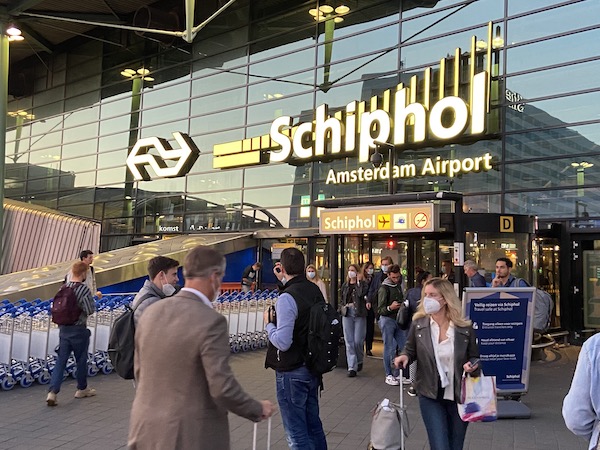Air ticket prices “could rise 10%” if Schiphol cuts flights

The cost of airline tickets could go up by a further 5% to 10% as a result of Schiphol’s plans to cut the number of flights, aviation experts say.
Aviation economist Rogier Lieshout told the Telegraaf that with Schiphol having to reduce landings by almost 10%, some consumers may stop using the airport all
together.
“Some will indeed go on holiday by car. Another part will move to other foreign airports,” he said.
The Dutch government, which owns some 70% of Schiphol, wants to reduce the number of flights to and from the airport in an effort to combat noise pollution.
Schiphol wants the government to ban noisier aircraft after exceeding noise limits for years. The airport also wants to reduce CO2 emissions by 2025-6, in line with its goals of achieving what it calls “lower impact aviation.”
Noise reduction
Outgoing infrastructure minister Mark Harbers has changed the law to allow Schiphol to deny future access to its runways to new airlines flying noisy aircraft, based on EU regulations.
However, the measure only applies to new airlines and won’t affect those already using Schiphol.
On Thursday parliament decided Harbers can proceed with his plans to cut the airport from April next year even though the cabinet is in caretaker mode, when it is supposed to avoid controversial policy areas.
The Telegraaf reports that a ministry document regarding the downsizing plans clearly states that consumers will pay for it.
Ticket prices will rise, transfer passengers are expected to have longer waits and flights to some destinations will be reduced, if not scrapped all together.
KLM has already said that the reduction will be at the expense of at least 30 destinations. Budget airline Transavia, with many short-haul routes, is expected to bear a large share of the burden.
Airlines opposed
KLM CEO Marjan Rintel says the government’s plans are based on old data from 2014 and that the airline’s fleet is completely different now.
“This does not take into account the effect of the latest aircraft types, which are 50% quieter than their predecessors,” Rintel recently told MPs. A quieter fleet means less reductions are necessary, she argued.
“Shrinkage also means scarcity, and so flights become more expensive,” Steven van der Heijden, CEO of Corendon, told the Telegraaf.
The tour operator has been expanding to airports across the border, including to Brussels and Weeze, Germany, and has ordered new, bigger aircraft that means its capacity can remain the same if fewer flights are permitted.
Tour operator TUI is also looking for closer cooperation with its colleagues in Belgium and Germany.
Passengers already have been paying more for the increased costs to airlines of using Schiphol, and now critics fear that a smaller number of passengers will have to bear the financial burden.
Airline unions expect 13,000 job losses, which also means less income tax revenue for the Dutch coffers.
Critics—from the US government to Dutch airlines and tour operators—want the Dutch parliament to declare the plans “controversial”, delaying the decision until the next government takes office after the general election in November.
Thank you for donating to DutchNews.nl.
We could not provide the Dutch News service, and keep it free of charge, without the generous support of our readers. Your donations allow us to report on issues you tell us matter, and provide you with a summary of the most important Dutch news each day.
Make a donation